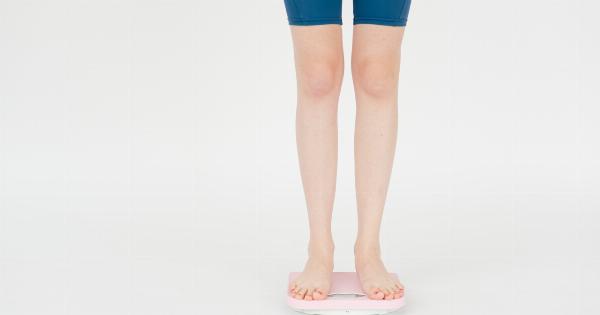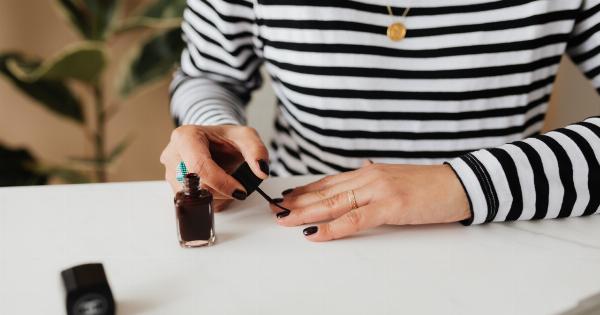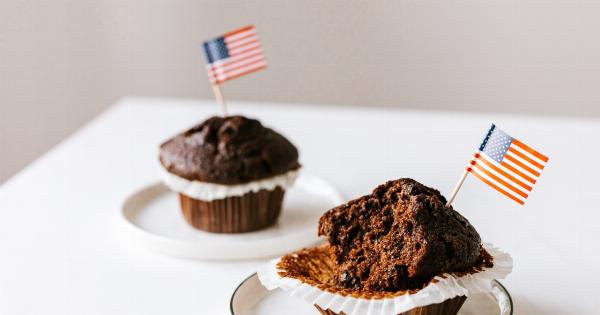Nail biting, also known as onychophagia, is a common habit that affects people of all ages. It is an oral compulsive habit that involves biting, chewing, or picking at the nails and cuticles.
Nail biting can be a mild habit for some people, but for others, it can become a serious problem leading to damaged nails, skin infections, and even dental issues.
The Effects of Nail Biting
Nail biting can have various negative effects on a person’s physical and mental well-being. Some common effects include:.
1. Damage to Nails: Constant biting can cause the nails to become weak, brittle, and prone to breaking. This can lead to pain and discomfort.
2. Skin Infections: Chewing on the skin around the nails can create open wounds, making it easier for bacteria and fungi to enter the body and cause infections.
3. Dental Problems: Nail biting can lead to dental problems such as chipped teeth, misalignment, and increased risk of bruxism (teeth grinding).
4. Emotional Distress: Nail biting can cause feelings of embarrassment, shame, and low self-esteem, particularly if the habit is visible to others.
The Reasons Behind Nail Biting
Understanding the underlying reasons behind nail biting can be helpful in finding effective strategies to overcome this habit. Some common reasons include:.
1. Anxiety and Stress: Nail biting often serves as a coping mechanism for anxiety, stress, or boredom. It can provide a temporary sense of relief or distraction.
2. Perfectionism: Some individuals with perfectionistic tendencies may bite their nails as a way to regulate their anxiety or maintain a sense of control.
3. Imitation: Nail biting can be learned through observation, especially during childhood. If a parent or family member has a nail-biting habit, children may imitate it.
Winning Strategies to Overcome Nail Biting
While nail biting can be a challenging habit to break, there are several effective strategies that can help you win the battle against nail biting:.
1. Identify Triggers
Start by identifying the situations or emotions that trigger your nail-biting behavior. This awareness can help you develop alternative coping mechanisms or strategies to avoid nail biting when faced with these triggers.
2. Keep Nails Trimmed
Keeping your nails short and well-maintained can reduce the likelihood of biting. Shorter nails provide less temptation and make it more difficult to engage in nail biting behavior.
3. Find Alternative Behaviors
Instead of biting your nails, find alternative behaviors to redirect the urge. For example, you could squeeze a stress ball, fidget with a small toy, or chew sugar-free gum.
4. Apply Bitter-Tasting Nail Polish
Using a bitter-tasting nail polish specifically designed to deter nail biting can be an effective deterrent. The unpleasant taste can discourage you from putting your fingers in your mouth.
5. Use Distraction Techniques
When you feel the urge to bite your nails, distract yourself with activities that keep your hands busy. Engage in a hobby, play a musical instrument, or practice relaxation techniques like deep breathing or meditation.
6. Practice Mindfulness
Be mindful of your nail-biting behavior by paying attention to the sensations and thoughts associated with it. Mindfulness techniques can help you become more aware of the habit and make a conscious effort to stop.
7. Seek Support
If nail biting is causing significant distress or interfering with your daily life, consider seeking support from a healthcare professional or therapist. They can provide guidance, support, and additional strategies to overcome the habit.
8. Reward Yourself
Set achievable goals and reward yourself for successfully avoiding nail biting. Treat yourself to a small reward whenever you reach a milestone or go a certain period without biting your nails.
9. Practice Good Nail Care
Take care of your nails by moisturizing them regularly and applying cuticle oil. Healthy nails are less likely to break, which can reduce the temptation to bite them.
10. Revisit Your Diet
Some studies suggest that certain nutritional deficiencies may contribute to nail biting. Ensure you have a balanced diet and consider adding supplements with vitamins and minerals like biotin, zinc, and iron.
Conclusion
Overcoming nail biting requires determination, patience, and a combination of strategies that work best for you.
By identifying triggers, finding alternative behaviors, and seeking support when needed, you can win the battle against nail biting and enjoy healthier and more beautiful nails.































